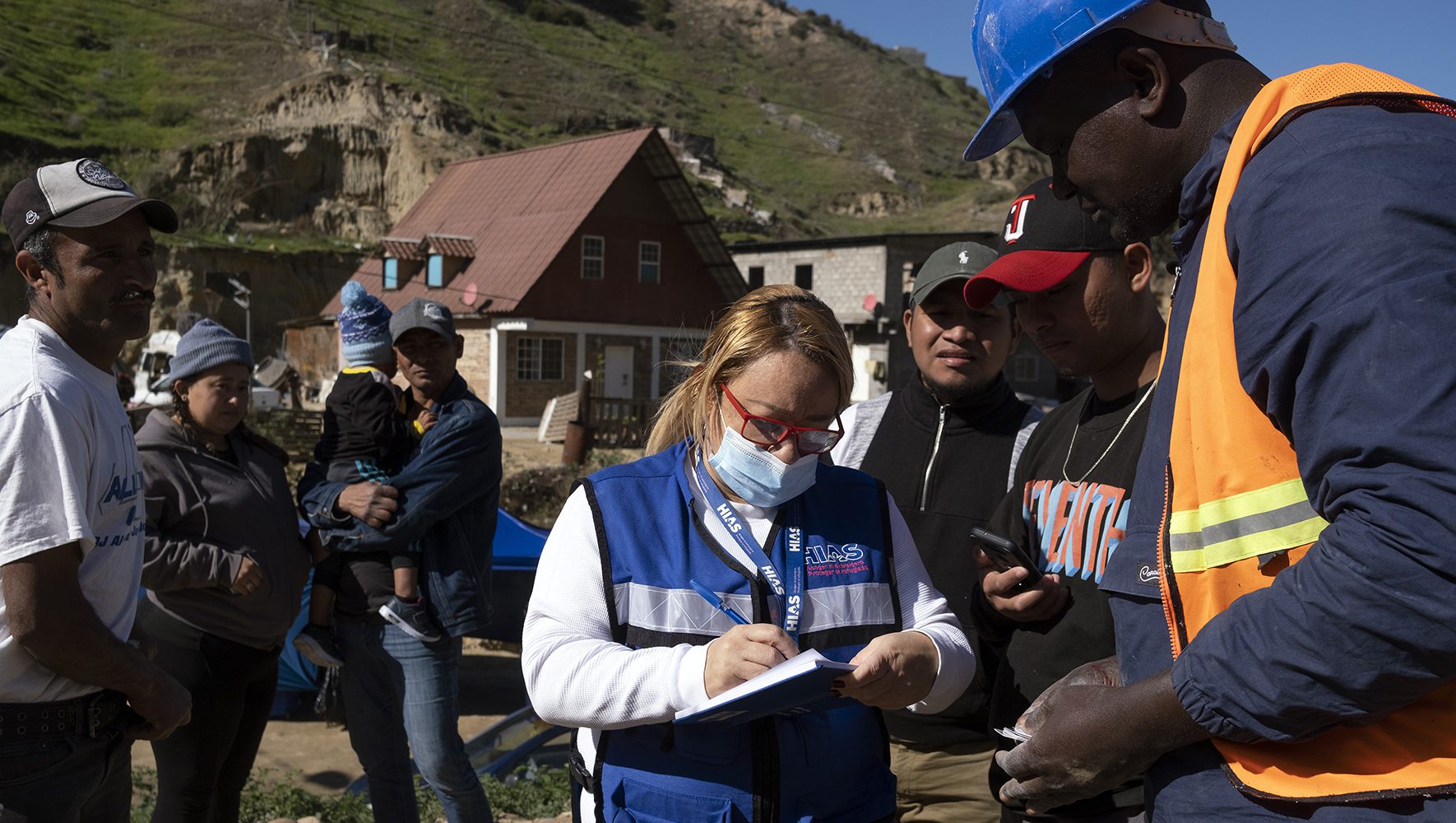Research and Evaluation
HIAS’ dedicated research team helps our staff learn, make evidence-informed decisions about our programming, and contribute to the global evidence base.
HIAS’ dedicated research team helps our staff learn, make evidence-informed decisions about our programming, and contribute to the global evidence base.

A HIAS staffer talks to asylum seekers outside the Embajadores de Jesus migrant shelter in Tijuana, Mexico, on February 17, 2022. (Guillermo Arias for HIAS)
HIAS is committed to providing the highest quality support possible to forcibly displaced people so that they can rebuild their lives with dignity. As part of this commitment HIAS invests in research, evaluation, and learning to enhance our programming, identify how best to allocate resources, and improve outcomes for displaced people around the world.
HIAS has a dedicated team to support the research, evaluation, and learning efforts carried out by country offices across the globe. Our staff conduct and collaborate on research that is focused on practical questions informed by our programming and the communities we serve.
HIAS supports the development of rigorous research and ethical guidelines to help our staff deliver high-quality programs and advocate on behalf of people affected by displacement. We incorporate a community-centered approach, engaging with communities to develop and implement innovative research and programming. Our research priorities are framed by our core program areas, including mental health and psychosocial support (MHPSS), economic inclusion (EI), gender and gender-based violence (GBV), legal protection, and child protection.
HIAS partners with a range of academic institutions, multilateral and non-governmental peer organizations, and private companies to design and implement research studies to improve services to people affected by displacement. HIAS shares findings with stakeholders to build the evidence base around what works in displacement-affected contexts, influence policy, and shape practice.
Current and recent partners include:
Columbia University, Pan American Health Organization (PAHO), The New School, Universidad Del Norte, Jewish Vocational Service of Boston (JVS), Washington University in St. Louis, Virginia Commonwealth University, University of Pennsylvania, McMaster University, Universidad de los Andes, United Nations High Commissioner for Refugees (UNHCR), El Colegio da la Frontera Norte (COLEF), and Javeriana University.
For more information on partnerships, please email research@hias.org.
In Ecuador and Panama, HIAS carried out a multi-phase study to better understand, prioritize, and address the psychosocial needs of displaced women and their host communities. HIAS staff developed a five-session MHPSS and protection intervention in collaboration with community representatives. The intervention, called Entre Nosotras, was designed to be delivered by trained community members. HIAS staff tested two versions of the intervention in partnership with University of Copenhagen, Columbia University, and others.
In Peru, HIAS partnered with Columbia University and UNHCR to carry out a study of how to adapt a psychological intervention to a COVID-19-affected setting, where remote delivery was necessary. The study also tested a shortened approach that was designed to better fit the needs of mobile populations. This work can help humanitarian organizations to better adapt care to settings marked by crisis and disruption and to better evaluate their efforts to do so.
In collaboration with academic partners and peer organizations, HIAS staff published an article describing strategies to ensure the centrality of equity when adapting mental health and psychosocial supports to meet COVID-19 requirements. The article also provides recommendations for ensuring the continuity of these innovations afterwards.